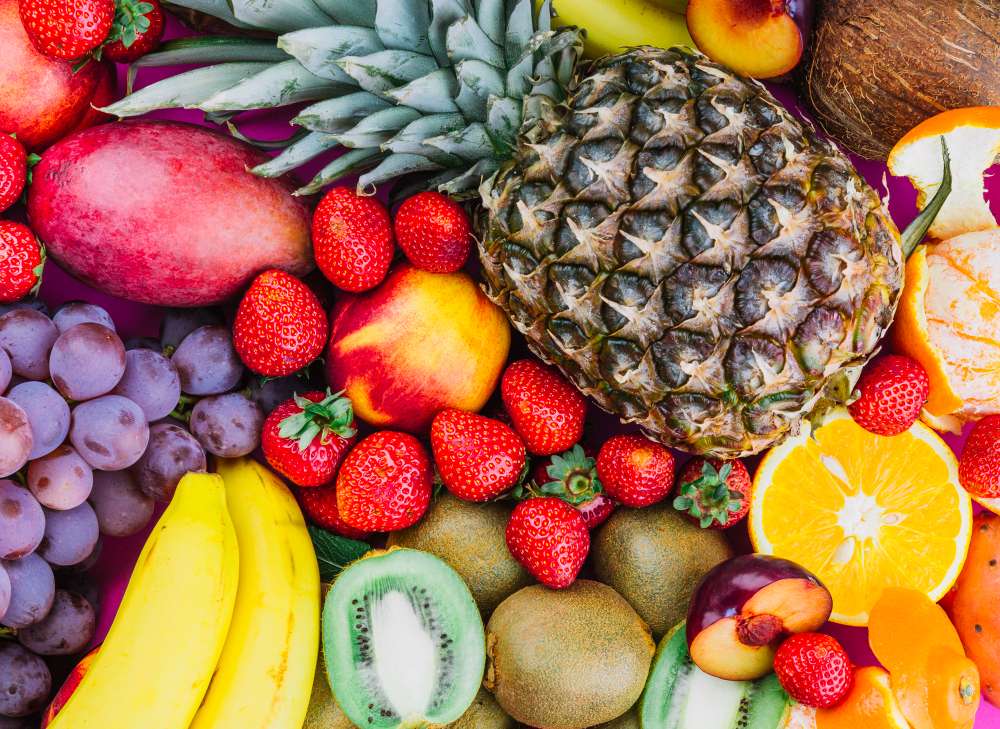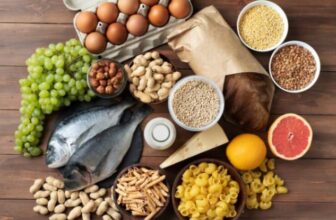
[adinserter block=”3″]
Consuming fruits and vegetables is linked to a lower risk of several illnesses, such as high blood pressure, stroke, heart disease, obesity, and several types of cancer. People frequently advise those with diabetes not to consume fruits because they consider them overly sweet or sugary, despite our knowledge that fruits and vegetables are healthy.
However, since most of these disorders are more likely to afflict persons with diabetes, it’s even more crucial for them to eat more fruits and vegetables. Eating more fruits and vegetables makes sense since they include a good balance of soluble and insoluble fiber, which benefits your digestive system and overall health.
Can A Diabetic Eat Fruits?
To effectively manage diabetes, it is essential to monitor key health indicators such as weight, blood pressure, blood lipids, and long-term blood glucose levels. Fruits and vegetables can play a valuable role in this process. While fruits do contain sugar, they have a moderate glycemic index and are less likely to cause rapid blood sugar spikes compared to sugary snacks or beverages.
It’s crucial to pay attention to portion sizes, as fruits typically provide about 15-20 grams of carbohydrates, similar to a slice of bread. Limiting the consumption of sugary foods and snacks is vital for maintaining stable blood sugar levels. Some individuals may overestimate the impact of fruits and vegetables on blood sugar. When consumed mindfully and in appropriate portions, fruits are unlikely to be the primary culprits in elevating blood glucose levels.
Is Fruit Juice Something That People With Diabetes Should Avoid?
When you consume fruit juice, it’s easier to intake a significant amount of carbohydrates quickly. This can lead to a rapid increase in blood glucose levels, which may impact your weight, depending on your diabetes management.
For this reason, it’s advisable to opt for whole fruits rather than fruit juice. If you do choose to have fruit juice, it’s essential to limit your intake to one small glass per day. Exceeding this recommended limit can result in weight gain and an undesirable rise in blood glucose levels.
If you decide to have juice with a meal, consider adjusting the carbohydrates in your meal to accommodate it. For example, if you typically have a few slices of bread with breakfast, skip one slice to account for the additional carbohydrates in the small glass of juice on the days you choose to include it. While this adjustment isn’t necessary every day, it provides you with the flexibility to manage potential blood sugar spikes associated with fruit juice consumption.
Also Read: 8 Warning Signs of Type 2 of Diabetes
Which Fruits Are Best For A Diabetic(Low GI Fruits)?
Fruits higher in fiber but lower in sugar are the best options for people with diabetes. If you have diabetes, you should add fruits with low GI (glycemic index) that won’t cause rapid spikes in blood sugar levels. Some good choices include:
-
Berries (e.g., strawberries, blueberries, raspberries): These are high in fiber and antioxidants.
-
Apples: Rich in fiber, they can help stabilize blood sugar.
-
Citrus fruits (e.g., oranges, grapefruits): High in vitamin C and fiber.
-
Cherries: They contain antioxidants and may have anti-inflammatory properties.
-
Peaches: Low GI and a good source of vitamins and fiber.
-
Pears: High in fiber and vitamins.
-
Kiwifruit: A low-GI option with plenty of vitamin C.
Which Fruits To Be Avoided By Diabetics(High GI Fruits)?
It’s essential to avoid or limit fruits with a high glycemic index (GI) and those that can cause rapid spikes in blood sugar levels to manage diabetes effectively. On the other hand, fruits that are poor in fiber and high in sugar are the worst for people with diabetes.
Fruits to be cautious about include:
-
Watermelon: It has a high GI and can lead to significant blood sugar increases.
-
Pineapple: Contains natural sugars that can affect blood sugar levels.
-
Mangoes: These are high in sugars and can cause spikes in glucose.
-
Dates: Extremely high in natural sugars and can rapidly raise blood sugar.
-
Figs: Have concentrated natural sugars and may impact blood glucose.
-
Grapes: High sugar content and can lead to blood sugar spikes.
-
Bananas: While they have some nutritional benefits, they’re relatively high in carbohydrates.
There are many diabetic diet drinks made up of fruits that should be avoided when you experience blood sugar spikes. Sodas are extremely harmful to diabetes patients.
What Are The Different Forms Of Fruits You Can Have in Diabetics?
Fruits are available in various forms, including fresh, frozen, canned, dried, and fruit juice. Each of these forms has its distinct nutritional profile, with variations in fiber and carbohydrates per serving. Following are the healthiest alternatives of fruits that you can add to your diabetic diet:
1. Fresh Produce
For individuals with diabetes, the consumption of fresh fruits of all varieties can be beneficial for their health. The critical factor is to choose and enjoy the fresh fruits that suit your taste and are readily available to you. Opting for seasonal fruits allows you to savor various fruit options throughout the year, ensuring variety and freshness in your diet. Additionally, if you are looking for diabetic foods, here is the best one!
2. Dry Fruit
Dried fruit contains less water and more concentrated carbohydrates compared to fresh fruit. As a result, each serving of dried fruit typically has a significantly higher carbohydrate content in terms of grams when compared to fresh fruit.
It’s crucial to be mindful of portion sizes, particularly when consuming dried fruit, as the concentrated carbohydrates can add up quickly in smaller servings. A study revealed that dried fruits showed beneficial results in patients who were suffering from diabetes and cardiovascular disease.
3. Canned Fruit
Canned fruits are typically available in three common varieties: natural juice, light syrup, or heavy syrup. The canning process used significantly affects the carbohydrate content per serving. According to NIH, cooked legumes and canned fruits stimulate the low blood sugar response.
Comparatively, fruits canned in natural juice generally have fewer carbohydrates per serving than those in light or heavy syrup. The additional sugar in the syrups contributes to higher carbohydrate levels in each serving.
4. Frozen Fruit
Frozen fruits offer a convenient and long-lasting option, ensuring you have fruit available without concerns about spoilage in a matter of days or weeks. Processing companies typically process most frozen fruits without adding sugars.
However, it’s essential to check the product label to confirm the absence of other ingredients that might impact the calorie and carbohydrate content per serving.
Conclusion
There’s no good reason to cut out fruit in a diabetes-friendly diet completely. When consumed in moderation, fresh fruit can be a nutritional powerhouse, providing essential fiber, minerals, and antioxidants to support a well-balanced diet.
Opting for whole, fresh fruits over fruit juices or dried fruit can prevent symptoms of blood sugar spikes while delivering valuable fiber and nutrients. To make informed decisions about can a diabetic eat fruits or which fruits are best for your dietary needs, consider monitoring your blood sugar levels before and after consuming them. Additionally, consulting with a dietitian or nutritionist can provide personalized guidance on fruit selection within your diabetes management plan.
[adinserter block=”3″]
Credit : Source Post






